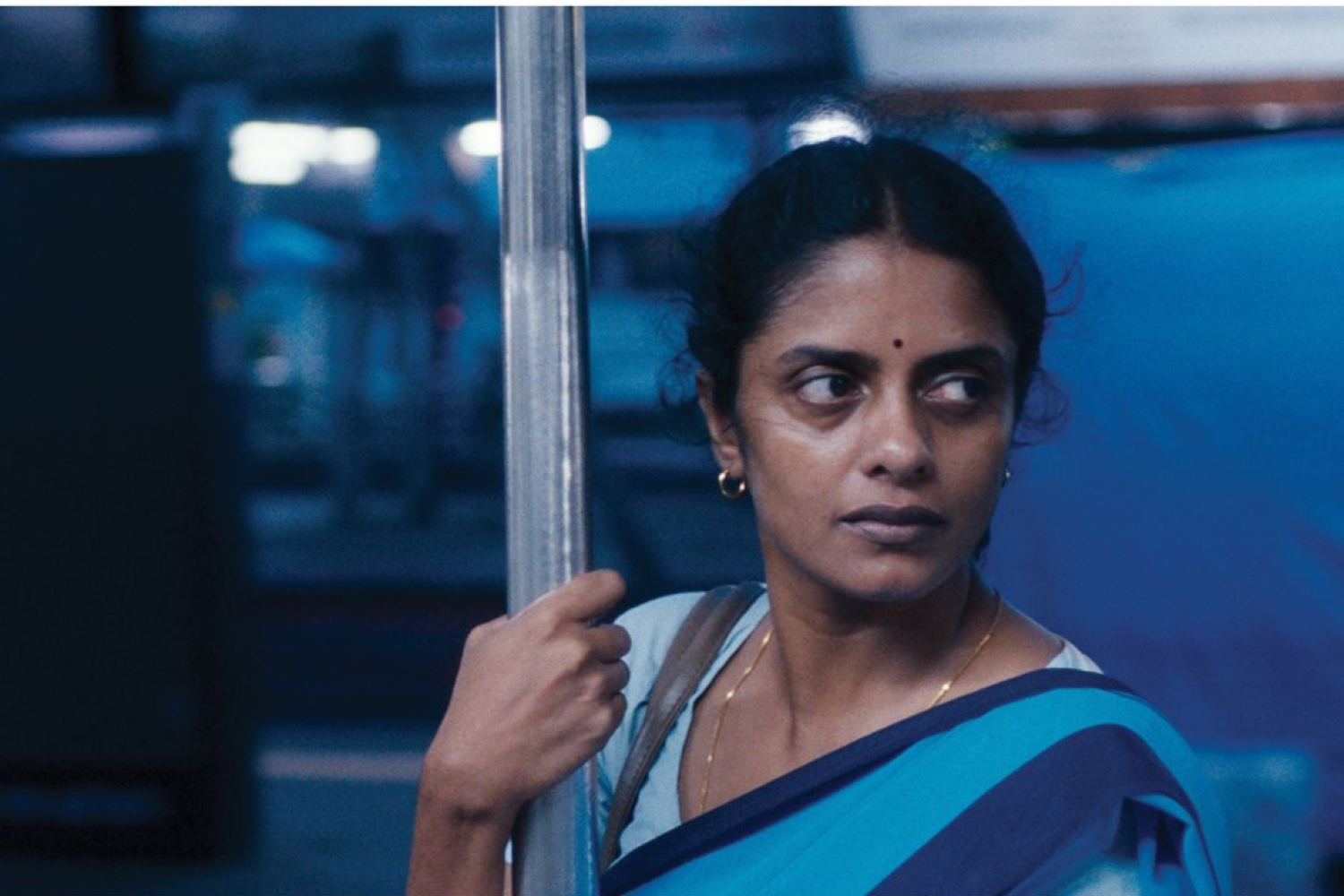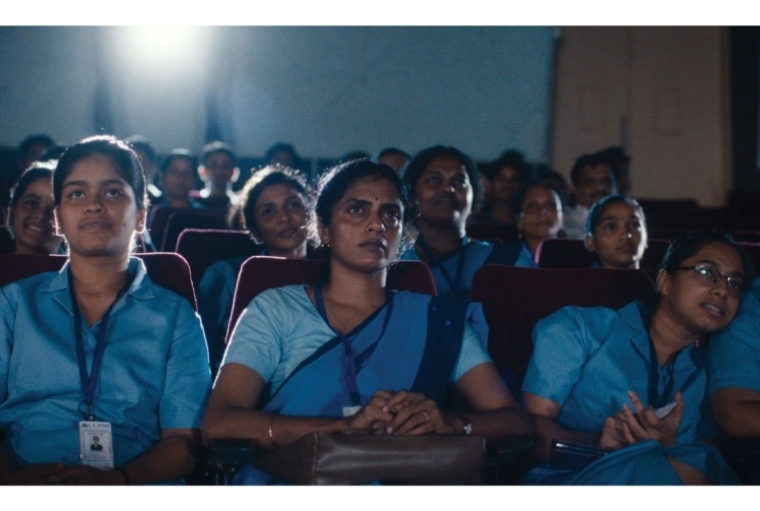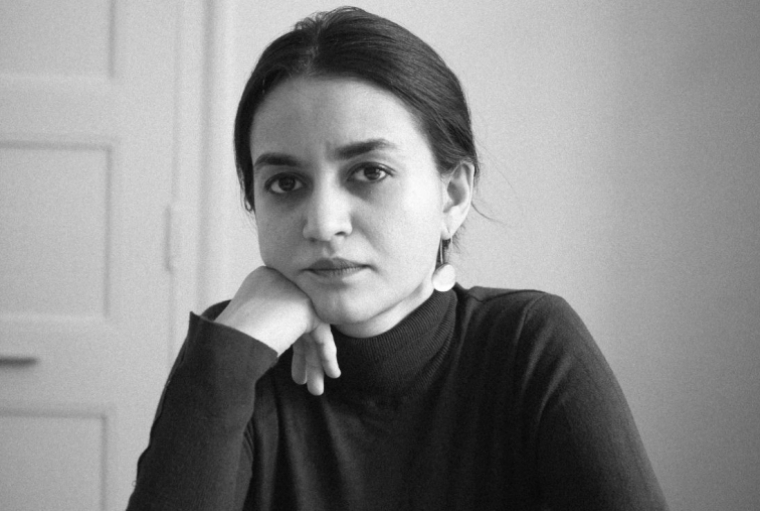

This year, filmmaker Payal Kapadia's debut fiction feature, All We Imagine as Light made history by becoming the first film from India to secure the coveted Grand Prix, the second most prestigious award at the Cannes Film Festival. Kapadia is no stranger to winning appreciation and acknowledgement for her slow and lyrical films though. In 2017, her short student film, Afternoon Clouds was the only Indian film picked to be screened at the 70th Cannes film festival. And, in 2021, her feature documentary, A Night of Knowing Nothing went on to win the Golden Eye award at Cannes.
All We Imagine as Light is an ode to Mumbai, a city bursting with people – many of whom are migrants, having adopted the rumbling metropolis as their home – nurturing aspirations while chasing opportunities. As an anonymous voiceover explains at the beginning of the film, 'Every family in the village has at least one person in Mumbai'.
The film is a poetic exploration of the inner lives of three nurses who work at a hospital together. It narrows its focus on these independent working women, who are trying to exist in a fast-paced city where one is often swallowed by loneliness and longing, while distracted by the many gleaming possibilities Mumbai promises to offer. It's a film about female friendship, hope, desire and self-liberation.
Kapadia studied at St Xavier's College, Mumbai, received a post-graduated diploma from SCMSophia, Mumbai, before applying to Film and Television Institute of India, Pune, where she was rejected the first time. Though disappointed, she remained undeterred, reapplied in 2012 and was accepted. While at the institute, she watched films made by Agnès Varda, Chantal Anne Akerman, Claire Denis, Ritwik Ghatak, G. Aravindan and John Abraham ('who is a director from Kerala, not the actor!') all who inspired and shaped her cinematic language. We caught up with Kapadia about her award-winning feature film, her creative instincts, her process and her close ties with the city of Mumbai.
Where did you grow up and who inculcated the filmy bug in you?
I was born in Mumbai but I went to Rishi Valley school in Andhra, which was a boarding school. We didn't have television there but every Saturday, there used to be one film screening and every Friday there was a film club gathering. So, if you were a part of the film club, you'd get to watch two movies a week and if you weren't, you'd only watch one. There was a Chemistry teacher who decided to start the film club and we all thought this would be a good way to watch one more movie, so we all joined it. He was a true cinephile; with every film, he used to give us a write up of the style of the film and what it was about and I think that got me interested in cinema and made me a cinephile as well.

What were some of the challenges that you faced as an independent filmmaker in the Indian film industry? Was it difficult for you to raise funds?
I think when we make films, the agenda is just to be able to make a film. I think, it's hard for anyone to make a film, whether it's independently or even if you have studio support, make a film. The extra things that you get from it are just extra. I think, it's hard for anyone to make a film, whether it's independently or even if you have studio support, because of the finances. So, one of the challenges was definitely finding funding. It took me four to five years to gather funds through different grants across the world, and eventually we manged to fund the film's production.
All We Imagine as Light is a billet-doux to Mumbai and the many lives that shape its identity. In a way, the city is also a character in your film. Why did you decide to situate your story there?
Mumbai is a city that I'm most familiar with; it's the city I know the best in India. I love it, and am also simultaneously pained by it. Mumbai gives one so much but it also very quickly takes it away. And, it's these qualities of the city that lead me to have many questions about it. That's why one makes films in the first place.
Your film is a moving portrayal of female friendship, while also delving into themes of self-discovery and reflection by exploring the characters' individual journeys. When and how did the idea for the story first come to you?
When I was a student at FTII, I was writing my final year diploma film in 2018. Around this time, I met few nurses who were having early training sessions, and I began collecting their stories. These stories really intrigued me somehow, and I wanted to make a film about that. However, as I went deeper and deeper into this world, I realised that I wanted to make a longer film, leading it to become more about Mumbai, about the city's complexities, what it's like coming to the city to work, and about the women who are working there. Over the years, I made another film in the middle, a documentary called A Night of Knowing Nothing, and this film was going on parallelly, so it took a backseat at the time, but then I got back to it in 2022 and I finally shot it in 2023, and it released in 2024.

Payal Kapadia
The film looks at the interiority of independent working women's lives, who exist on the margins of society. Could you talk a bit on this?
For me, the women portrayed in the film are the ones whom I have met quite often in Mumbai I feel they are the ones who run the city. For instance, in the hospitals, it's the nurses who we first interact with, not the doctors. They are the ones who take care of us, whether it's at birth or when one is nearing death. So, for me, they are not invisible, it's just that we don't always know the inner lives of what's behind the uniform and this was something I was curious to explore.
I'm curious about the film's title. What led you to call it, All We Imagine as Light?
The title comes from the idea of light being a possibility or a ray of hope because quite often we are so conditioned to think in a certain way that we don't even think that another way is possible. That was what I was thinking about when I gave the title - it's to imagine what else is possible; that there's always another way.
This is an all exclusive excerpt from our Bookazine. To read the entire article, grab your copy here.
Words Radhika Iyengar
Date 23.11.2024